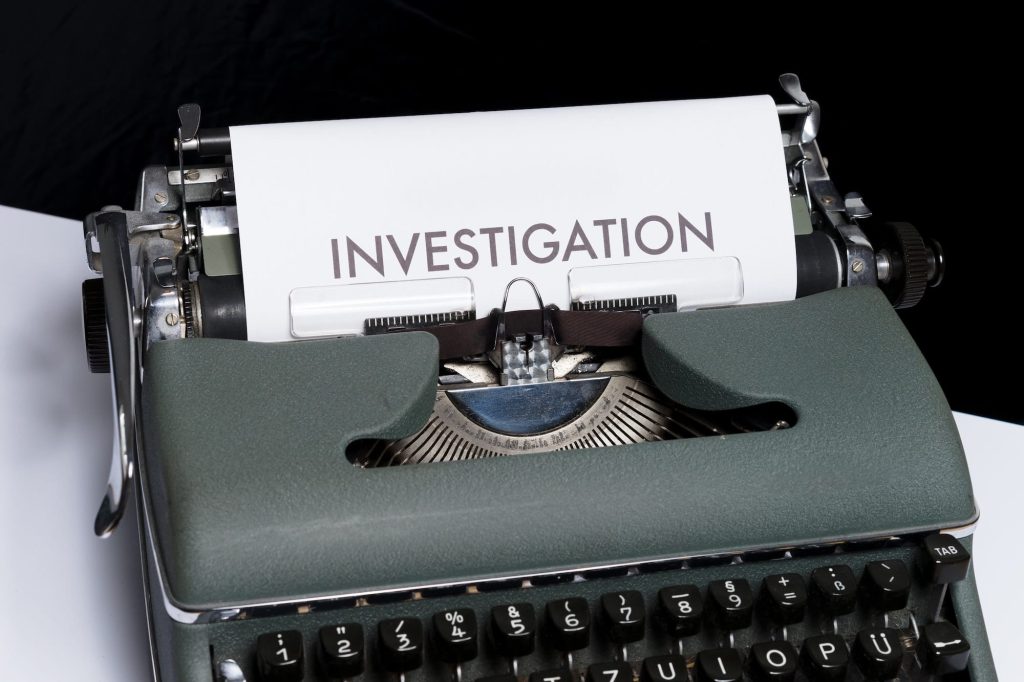At the core of a successful workplace investigation are investigative interview strategies that are effective at drawing out the truth without discounting their professionalism and integrity. Despite popular belief, an accusatorial interviewing style that attempts to pressure the defendant into answering truthfully is not very efficient, particularly within the corporate context where it has been considered outdated for some time now. Furthermore, this method can quickly breach ethical boundaries and often relies unfairly on confirmation biases to reach conclusions.
In contrast, studies show that investigative interviews that utilise rapport-building techniques perform better in prompting honesty and accuracy from responders. In the late 20th century, when this research was unfolding, a collaborative effort between psychologists and law enforcement emerged in the UK that aimed to create a new framework of investigative interviewing that would tackle the challenges posed by the accusatorial style.
From this enterprise came the P.E.A.C.E model, a now internationally accepted method of conducting investigative interviews. This article will delve into how the P.E.A.C.E model operates and can enable your workplace investigation interviews to be far more successful whilst remaining professional and respectful.
What is the P.E.A.C.E model for investigative interviews?
The P.E.A.C.E model is a framework for investigative interviewing that has been implemented globally in many industries in both the public and private sectors over the past few decades. It is flexible by nature and can be utilised in a range of contexts from law enforcement to corporate environments.
The acronym P.E.A.C.E stands for the five different stages of investigative interviews the model is founded upon. When expanded, the letters refer to:
P – Preparation and Planning
E- Engage and Explain
A- Account, Clarification, Challenge
C- Closure
E- Evaluation
Breaking down the five stages of the P.E.A.C.E. model for investigative interviews
1. Planning and preparation
As the first stage of the investigative interview process, the planning and preparation phase gives the interviewer, alongside any other personnel involved in the investigation, time to organise themselves and make important decisions regarding the investigation. The team must decide here which parties are required to partake in interviews or perhaps whether they are necessary at all.
Preparation for the investigative interview must be thorough and consider all relevant events, issues and evidence. Perhaps most importantly, the objective of the interview must be identified as without it, there is no guiding goal that can direct the interview process towards a successful outcome.
The interviewer has a range of considerations to make during this time, for example:
- Writing up a plan for the interview
- Deciding practicalities such as interview format and location (or even remote interviewing which may be necessary for certain contexts)
- Any relevant characteristics of the interviewee that need to be catered to
- Make sure they have revised all relevant information and are up to date with the current status of events
- What important questions must be asked to obtain relevant information
- How the interview will be recorded and documented
These considerations ultimately work to make sure that the interview aligns with the overall aims of the investigation. Whilst the number of tasks that need to be completed may be overwhelming, the planning and preparation stage is invaluable in the investigative interview process. It allows the interviewer to make sure they have covered all their bases and mentally prepare for the interview with confidence that there is a thorough plan in place for how to proceed with the investigative interview.
2. Engage and explain
Building rapport and having open communication are central to the P.E.A.C.E model. It is essential to actively seek to do this as soon as the investigative interview begins, from the moment the interview walks through the door and introductions are made. Encouraging conversation during investigative interviews can be difficult, especially when the interviewee is likely to be nervous and cautious. However active listening and engagement on the interviewer’s part help to establish and maintain rapport throughout the interview.
Consciously encouraging and engaging the interview helps the investigative interview by allowing the questioner to:
- Pick up on new important details that are relevant to the investigation
- Manage and guide the conversation towards relevant topics
- Deliver a sincere interest in the responder’s perspective

Furthermore, at the commencement of the investigative interview, the aims and purpose of the session which were identified in the planning and preparation stage should be conveyed to the interviewee. The structure and plan for the interview should be communicated as well as the interviewee’s rights and legal obligations.
Additionally, it is helpful to remind them that they are in a confidential environment and are free to ask for clarification or voice concerns at any point they feel the need to. Without ensuring that all the standard requirements of an investigative interview are met in this manner, the entire session can be deemed invalid by a court if the investigation results in legal conflict.
3. Account, clarification, challenge
When seeking to gain an accurate account of the interviewee’s experiences requires a combination of both initiation and support from the interviewer throughout the session. Doing so is a skill that improves with practice, but common and useful ways to implement it within the investigative interview can include:
- Parroting – Where the interviewer repeats what they hear back to the interviewee in a summarised form. This is very effective as it highlights that you are listening and hearing them, ensures that you interpreted the information correctly and provides an opportunity for clarification.
- Making no judgment – Make sure no accusatory remarks are made at any point no matter the content of the conversation and your personal opinions. Doing so is a surefire way to shut down open communication channels and leave the interviewee feeling upset and unwilling to share their honest experiences for fear of repercussion and judgment.
- Being patient – Whilst you may have a limited amount of time set for the interview and a number of questions to get through, try and allow the interviewee to speak their thoughts without being hurried along. Don’t try to fill in silences, finish their sentences or interrupt them (unless they have strayed very far off topic) as it can cut the flow of communication and cause important details to be missed.
- Non-verbal communication – Maintaining open body language and gesturing appropriately helps to relax the atmosphere into one less formal or hostile.
When asking questions, try and ensure they remain short and simple and do not contain jargon or other languages which may be misunderstood by the interviewee. There is a range of question types you can employ based on what information you need and these are:
- Open-ended
- specific-closed
- forced-choice
- multiple
- leading
4. Closure
Before concluding the investigative interview, the responder should be given time to ask any questions they may have. Any notes or recordings made should be secured alongside anything the interviewee’s personal requests for any clarifications. The steps following the interview, as per the company’s guidelines, should be explained so that the interviewee knows what to expect in the coming weeks.
5. Evaluation
Following an interview, the interviewer and the rest of the workplace investigation team should evaluate the content of the interview and its outcomes. This evaluation will be crucial to any decisions about the next steps of the investigation and future action. The interview process is also examined so that the interviewer is able to reflect on their abilities and note any areas of improvement for future reference.
As a result of its non-accusatory, information-gathering approach to investigative interviewing, the P.E.A.C.E model is suitable for any type of interviewee and prioritises obtaining an unbiased, fact-based account from them. The model pushes interviewers to be fair and open-minded and to pursue reliable, true, and accurate information. Implementing this model or even adapting your current framework in reflection of P.E.A.C.E’s key values will be a great start towards more effective investigative interviews.
Let's Get Started
Interested in learning more about how Polonious can help?
Get a free consultation or demo with one of our experts




